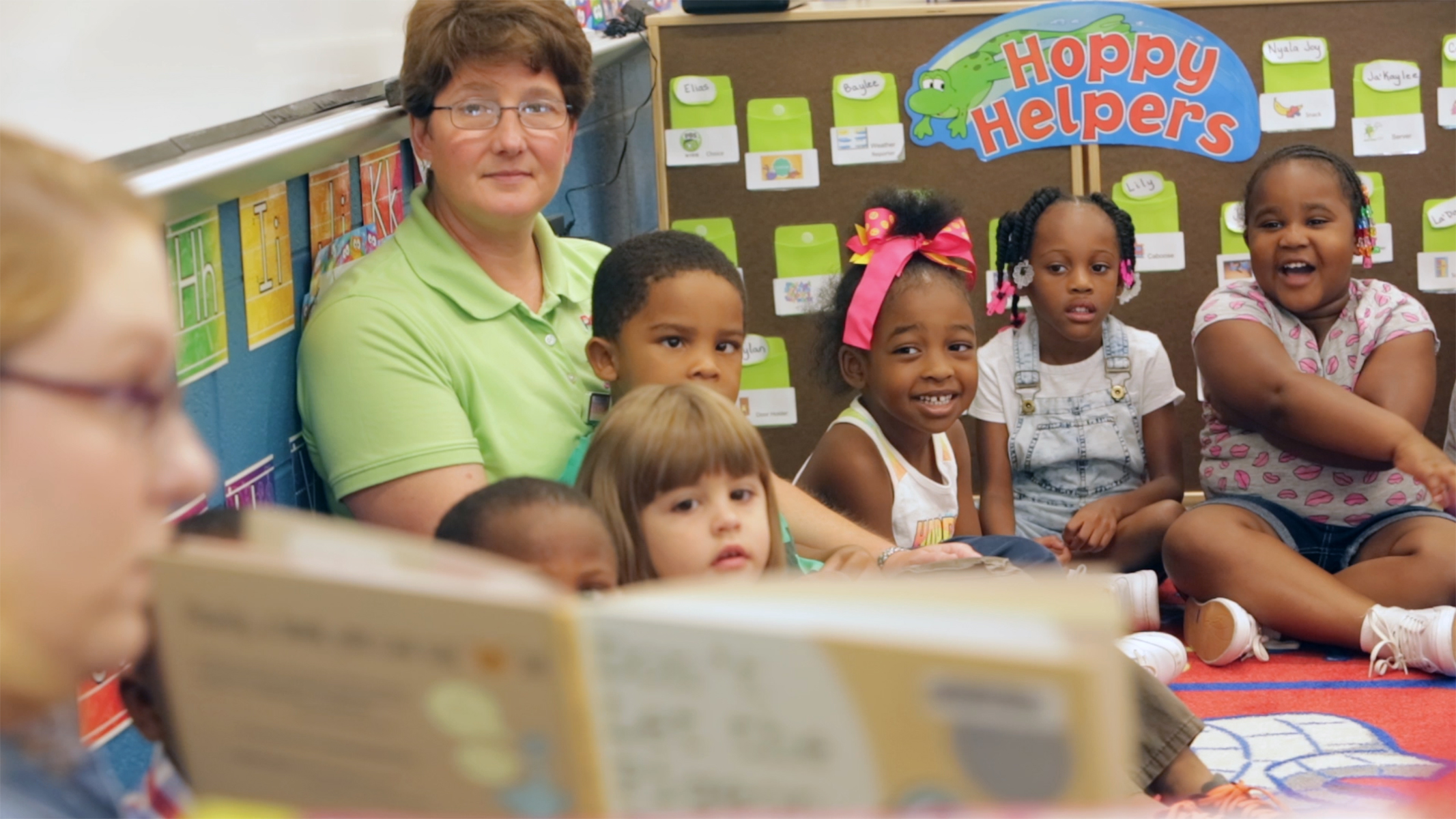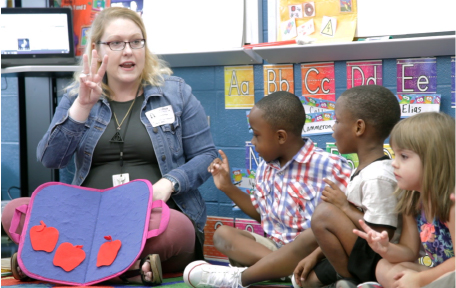How to Raise a Reader
November is Family Literacy Month, and with the sunny days growing shorter what better time to gather together and share a great book? Whether your child is an emerging reader, reading proficiently, or on the struggle bus with skill or interest- it is so important to encourage reading. According to a study by the National Center for Education Statistics, children with a “richer home literacy environment displayed higher levels of reading knowledge and skills than did their counterparts with less rich home literacy environments.” As a working parent, I understand how tough it can be to keep up with the rigors of school, work, and daily life and have some suggestions to incorporate family literacy right at home.

Keeping books around the house is one easy way to make opportunities to read happen. Keep some in the kitchen and have them read while you prepare meals, for example. Another option is to keep them in the bathroom. I remember the bathtub books when my child was a toddler and reading them as she splashed and played. Keep books in their rooms, in the family room, in the car- anywhere where you can snatch a few minutes to read while you wait or on the go. If a parent feels comfortable with books and keeps them around, a child will be more willing to pick them up and explore them.
Setting aside a time each day for reading is important too- bedtime is great, but it can be any time. Have an ongoing conversation with your child about what they are reading, why they like it (or even why they don’t like it- every opinion counts- finding out why pulls out those details from the text and allows your child to express their own opinion and feelings in a safe and supported environment.) Talk about what YOU are reading. Modeling that behavior is a big boost for motivating your family to follow suit.
If you have a very young child at home reading is still a vital activity. Holding your baby or toddler close while reading not only is quality parental bonding time but talking and singing to your child increases their brain development. The simple act of hearing words spoken increases vocabulary and communication skills. Looking at pictures links awareness that the pictures have meaning. If for example you read a farm story and point out a cow in the pictures, make a sound that the cow makes or sing a farm song. It can be reinforced in the real world if you pass by a pasture with grazing cows and you can point them out and make the sounds or sing the song. Naming objects all around increases awareness of these objects and builds vocabulary which is an extremely important skill for children to have. On average, children enter school with a vocabulary between 3,000-5,000 words. Children who are surrounded by words will undoubtedly be able to know more!
One thing I emphasize with Summer Reading is that literacy comes in many forms. Yes- it is reading but it can take place with other activities, too. Singing songs to each other builds many skills, plus it’s fun! Telling stories is a wonderful activity, too. They can be stories about your childhood, things that happened during your day, funny anecdotes, or made up adventures. Audiobooks or kids podcasts in the car count- yes they count. Graphic novels or picture-heavy chapter books (like Diary of a Wimpy Kid) TOTALLY COUNT. And please don’t stress about reading levels. At home, read for fun. Read what interests and what inspires your child. Please don’t limit them based on what may seem “too hard” or “too easy.” Children find comfort in going back to the familiar so if your older child picks up a book you remember them reading years ago it is FINE. Children are also excellent self-censors and if they pick up a book that is far beyond their skill they will often abandon it to a book with accessible vocabulary. That is not to say we shouldn’t applaud them for challenging themselves. Parents are a child’s first teacher and I always admired the “big books” my mom kept on the shelf. I admired them so much that I took a book to school one day that I wanted to read to impress her: Stephen King’s The Eyes of the Dragon. Once my teacher regained consciousness after she saw what I was reading, the book was confiscated and my mom was called. It was my first lesson that sometimes books are off-limits, and I have never liked it. (I re-read the book much later and it is still one of my favorite books by the author.) To her credit, my mother did not scold, did not overreact. She simply told me that if I wanted to read a book on her shelf that she would be happy to help me, and if I had questions to come and ask her. My lifelong love of reading and books came from her and her gentle handling of what could have been something to make me feel ashamed and cloud the joy of reading forever was something to this day that awes me. As a librarian, I hope I have been that same gentle hand leading youth to the stories to shape their minds, hearts, and lives.
If your child is struggling with reading, ask them to talk. Create a story, illustrate it, act it out- there are so many ways to engage them. If there is a movie they LOVE that just also happens to be based on a book do a book to movie book club and compare the two. Create a weekly menu and use food labels to assist in those recipes. Visit the library together and let your child pick out a book, and then as they read it ask them about it (can you relate it to anything going on in their life?) Sometimes the act of getting to pick out the book themselves carries a lot of weight and a feeling of ownership for a child. Often it is just a matter of finding that spark for a child to learn to love reading. Sometimes it takes consistency, patience, and time. I remember getting a call when I’d left home and was at college. It was my brother, who breathlessly asked me what book came after Eye of the World by Robert Jordan. It took me a moment to realize that number one: he’d been in my room and number two: he’d actually read a 700-page book on his own FOR FUN. This NEVER happened until he was in high school (I think he was a sophomore or a junior) and he had always struggled to read before then. It took good old-fashioned snooping to get him excited about reading, and he read every book in that series. So, don’t give up because you never know what may ignite someone’s passion.
The Huntsville-Madison County Public Library is proud to support family literacy in all of its forms. We offer plentiful titles for you and have a robust digital collection that is growing all of the time. During this time, we also offer virtual storytimes and other programs on our YouTube channel. Our library staff is happy to help connect you and your family to great reads- it’s what we love to do!

Tips For Parents:
- Keep books around the house
- Set up a time to read together
- Talk about what you are reading
- Ask questions as you read
- Set a good example by reading
- Read over and over- repetition is great for learning
- Get into the act: use silly voices and make it fun
- Track words with your finger as you read aloud
- Be patient and encouraging- use gentle corrections and positive feedback
- Set reading goals
- Take books with you
- Be excited about reading!
